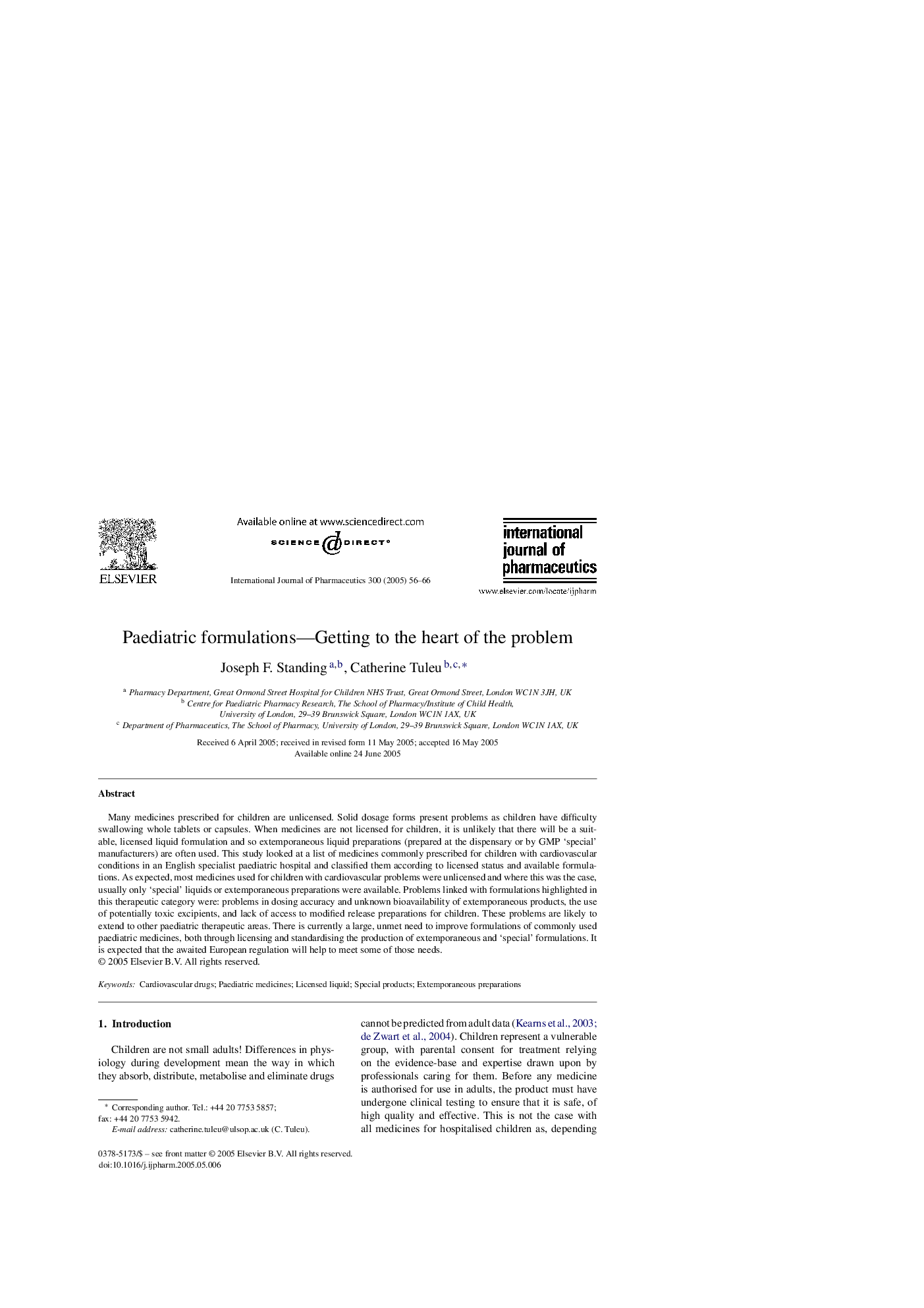| Article ID | Journal | Published Year | Pages | File Type |
|---|---|---|---|---|
| 9918681 | International Journal of Pharmaceutics | 2005 | 11 Pages |
Abstract
Many medicines prescribed for children are unlicensed. Solid dosage forms present problems as children have difficulty swallowing whole tablets or capsules. When medicines are not licensed for children, it is unlikely that there will be a suitable, licensed liquid formulation and so extemporaneous liquid preparations (prepared at the dispensary or by GMP 'special' manufacturers) are often used. This study looked at a list of medicines commonly prescribed for children with cardiovascular conditions in an English specialist paediatric hospital and classified them according to licensed status and available formulations. As expected, most medicines used for children with cardiovascular problems were unlicensed and where this was the case, usually only 'special' liquids or extemporaneous preparations were available. Problems linked with formulations highlighted in this therapeutic category were: problems in dosing accuracy and unknown bioavailability of extemporaneous products, the use of potentially toxic excipients, and lack of access to modified release preparations for children. These problems are likely to extend to other paediatric therapeutic areas. There is currently a large, unmet need to improve formulations of commonly used paediatric medicines, both through licensing and standardising the production of extemporaneous and 'special' formulations. It is expected that the awaited European regulation will help to meet some of those needs.
Keywords
Related Topics
Health Sciences
Pharmacology, Toxicology and Pharmaceutical Science
Pharmaceutical Science
Authors
Joseph F. Standing, Catherine Tuleu,
